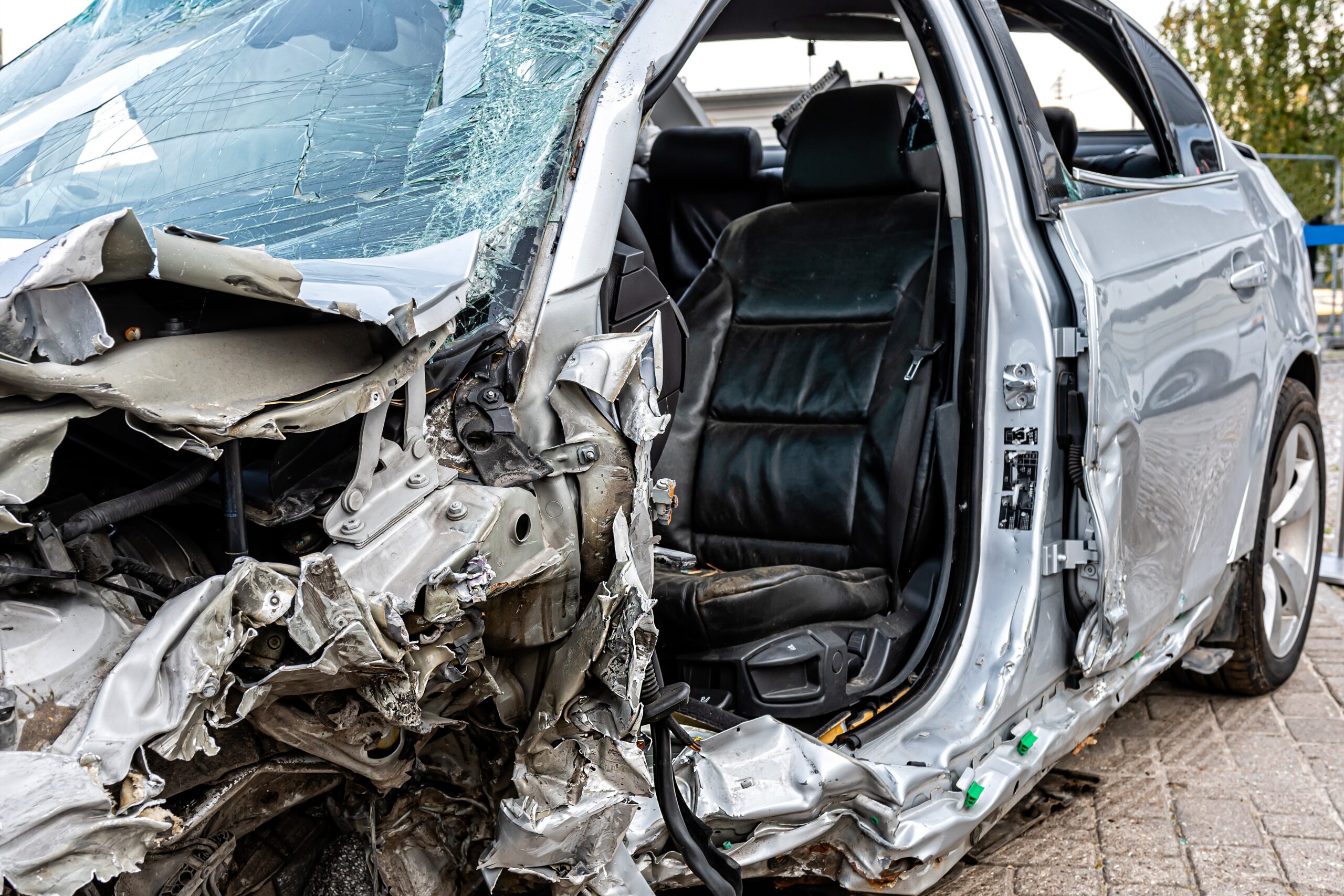Mastering the Aftermath: A Comprehensive Guide to California DUI Penalties
A DUI arrest in California is a jarring and confusing experience. One moment, you’re a regular driver, and the next, you’re facing a complex legal system with two separate cases, one in criminal court and one with the Department of Motor Vehicles (DMV). The penalties for a DUI are not just a simple fine; they are a multi-faceted series of consequences that can impact your life for years to come. Understanding what to expect is the first, crucial step toward protecting your future.
The state of California has some of the most stringent DUI laws in the nation. The penalties are designed to be a significant deterrent, escalating in severity with each subsequent offense. This guide will walk you through the potential consequences of a DUI conviction, from a first-time offense to more severe charges, and explain the difference between the criminal and administrative actions. We’ll explore everything from fines and jail time to license suspensions and mandatory DUI programs, providing a clear roadmap of the journey ahead. While this information is designed to educate you, remember that navigating this legal landscape requires the expertise of a qualified professional.
The Two-Front Battle: Criminal Court vs. DMV
When you are arrested for a DUI in California, you are immediately thrown into two separate legal battles. It’s a common misconception that these two processes are one and the same. They are not. The outcomes are independent of each other, meaning you can “win” one and still “lose” the other.
The Criminal Case
This is the case prosecuted by the District Attorney’s office in criminal court. The focus here is on punishing the criminal act of driving under the influence. The penalties are determined by a judge and are subject to California’s Vehicle Code. They can include jail time, probation, and significant fines.
The Administrative Case (DMV)
This case is handled by the California DMV. The administrative process, known as the “Administrative Per Se” or “APS” action, is an immediate and automatic suspension of your driver’s license. The arresting officer confiscates your physical license and issues you a temporary one that is only valid for 30 days. You have just 10 calendar days from the date of your arrest to request a hearing with the DMV to fight this suspension. Failure to do so will result in an automatic license suspension.

A Look at Penalties by Offense
The penalties for a DUI in California are “priorable,” meaning they become significantly harsher with each offense within a 10-year period. This 10-year lookback period includes any previous DUI convictions, including those from other states or a “wet reckless” conviction.
First-Time DUI Offense
For most people, a first-time DUI is a misdemeanor offense. The penalties are still severe, but there is often more room for a skilled attorney to negotiate on your behalf.
- Jail Time: Up to 6 months in a county jail, although for a first offense, many people are sentenced to a period of probation instead of jail.
- Fines and Fees: Fines can range from $390 to $1,000, but with court fees and penalty assessments, the total cost can easily exceed $2,000.
- Probation: Typically, a period of 3 to 5 years of informal probation is imposed, with conditions that you do not commit any new crimes and do not drive with any measurable amount of alcohol in your system.
- DUI School: You will be required to complete a DUI education program. For a first offense, this is usually a 3-month program (an AB541 class), but it can be extended to 9 months depending on your blood alcohol content (BAC).
- License Suspension: The DMV will suspend your license for 6 months. However, you can often obtain a restricted license or an ignition interlock device (IID) restricted license that allows you to drive immediately after the initial 30-day suspension period, provided you meet specific requirements.
- Ignition Interlock Device (IID): A first-time offender will be required to install an IID for 6 months to get a restricted license and regain their driving privileges. The IID is a device that requires you to blow into it before starting your vehicle.
Second-Time DUI Offense
A second DUI conviction within 10 years significantly escalates the consequences. The legal system takes a much stricter view of repeat offenders.
- Jail Time: Mandatory jail time is imposed. The sentence can range from 96 hours to a full year in county jail, although some counties have stricter mandatory minimums.
- Fines and Fees: The fines remain in the range of $390 to $1,000, but with additional penalty assessments, the total financial burden is substantial.
- Probation: You will be placed on 3 to 5 years of informal probation.
- DUI School: The mandatory DUI school becomes much longer. You will have to attend an 18-month or 30-month program.
- License Suspension: The license suspension period is a much longer 2 years.
- Ignition Interlock Device (IID): An IID is a mandatory requirement for 1 year to obtain a restricted license.
Third-Time DUI Offense
A third DUI conviction within 10 years is a major legal hurdle. While it is still a misdemeanor in most cases, the penalties are designed to be a severe punishment and a clear warning.
- Jail Time: The mandatory jail time increases to a minimum of 120 days and can be up to a full year in county jail.
- Fines and Fees: Fines are still in the same range, but the total cost with assessments can be thousands of dollars.
- Probation: You will be placed on 3 to 5 years of informal probation.
- DUI School: A 30-month DUI education program is mandatory.
- License Suspension: Your driver’s license will be suspended for 3 years.
- Ignition Interlock Device (IID): You will be required to install an IID for 2 years to obtain a restricted license.
- Habitual Traffic Offender: The DMV will designate you as a “Habitual Traffic Offender” (HTO) for a period of 3 years.
DUI with Injury: A “Wobbler” Offense
If a DUI offense results in an injury to another person, it becomes a “wobbler” offense. This means the prosecutor can charge it as either a misdemeanor or a felony, depending on the severity of the injury and your criminal history. The stakes are significantly higher.
- Misdemeanor with Injury: This can result in a sentence of 5 days to 1 year in county jail, fines up to $5,000, and a license suspension.
- Felony with Injury: This is a much more serious charge. It can lead to a state prison sentence of 16 months, 2 years, or 3 years. The sentence can be extended by an additional year for each injured victim and 3 to 6 years for each victim who sustained a “great bodily injury.” Fines can go up to $5,000, and your license can be suspended for up to 5 years or even permanently.

Aggravating Factors That Increase Penalties
Certain circumstances surrounding your DUI arrest can lead to more severe penalties, regardless of whether it’s your first offense. These “aggravating factors” give prosecutors leverage to seek harsher sentences.
- High BAC: A BAC of 0.15% or higher, and in some counties, even a lower threshold, can lead to increased penalties.
- Refusal to Take a Chemical Test: Under California’s “implied consent” law, refusing to submit to a chemical test (breath, blood, or urine) after a lawful DUI arrest results in an immediate and longer license suspension, with no possibility of a restricted license for the duration.
- Minor in the Vehicle: If a minor under the age of 14 was in the car at the time of the DUI, you face a significant sentence enhancement, including additional jail time.
- Causing an Accident: Even without injury, causing an accident during a DUI can lead to additional jail time and higher fines.
- Excessive Speed: Driving at excessive speeds while under the influence is an aggravating factor that can add to your jail sentence.
Conclusion
A DUI conviction in California is a serious matter with far-reaching consequences that extend beyond a simple court date. It can affect your finances, your freedom, your ability to drive, and even your future employment opportunities. The penalties are complex, and the legal process is unforgiving.
Navigating this system on your own is not advisable. The legal and administrative procedures are distinct, and a misstep in one can have a cascading negative effect on the other. An experienced DUI defense attorney can provide crucial guidance, from requesting the timely DMV hearing to negotiating with prosecutors and building a strong defense in court.
If you are facing a DUI charge in California, do not wait. The time to act is now.
If you have been arrested for a DUI in California, you need a legal advocate on your side. Contact The Win Law Firm today for a confidential consultation to discuss your case and understand your legal options. Our experienced team is ready to fight for you.
Disclaimer: This blog post is for informational purposes only and does not constitute legal advice. Always consult a licensed attorney for guidance specific to your case.
FAQs about California DUI Penalties
Q: What is the difference between a criminal DUI case and a DMV administrative hearing?
A: A criminal DUI case is handled in court and focuses on the criminal offense itself, with potential penalties like jail time, fines, and probation. The DMV administrative hearing, on the other hand, is an administrative process that deals solely with your driving privilege. The DMV can suspend or revoke your license independently of the court’s decision. You must request this hearing within 10 days of your arrest to avoid an automatic license suspension.
Q: Can I refuse a DUI chemical test in California?
A: Under California’s “implied consent” law, all drivers implicitly agree to submit to a chemical test (breath or blood) if they are lawfully arrested for a DUI. Refusing to do so can result in an immediate and mandatory license suspension of one year or longer, and you will not be eligible for a restricted license during that time. This refusal can also be used against you in court.
Q: What is an Ignition Interlock Device (IID)?
A: An IID is a small breathalyzer that is installed in your vehicle. Before you can start the car, you must blow into the device. If it detects any alcohol on your breath, the car will not start. The IID also requires random breath tests while you are driving to ensure continued sobriety. In California, IIDs are a mandatory requirement for most DUI offenders who wish to obtain a restricted license.
Q: What is an SR-22?
A: An SR-22 is a certificate of financial responsibility that proves you have the minimum required liability insurance coverage for your vehicle. It is not an insurance policy itself, but a form that your insurance company files with the DMV. In California, an SR-22 is almost always a mandatory requirement for getting your driver’s license reinstated after a DUI suspension.
Q: Is a DUI conviction a felony or a misdemeanor?
A: In California, a DUI is typically a misdemeanor. However, it can be elevated to a felony under certain circumstances, such as if the DUI caused an injury to another person, or if you have three or more prior DUI convictions within the last 10 years, or if you have a prior felony DUI conviction.
Q: Can my DUI charge be reduced to a “wet reckless”?
A: In some cases, a DUI charge can be reduced to a “wet reckless” (reckless driving involving alcohol) as part of a plea bargain. A wet reckless conviction typically has less severe penalties than a DUI, including shorter probation, a shorter DUI school program, and a less severe impact on your insurance rates. The possibility of this reduction depends heavily on the specific facts of your case and the skill of your attorney.
